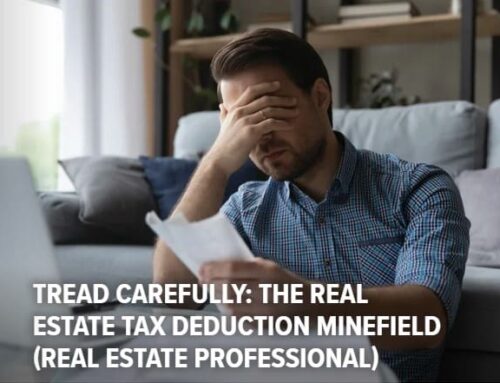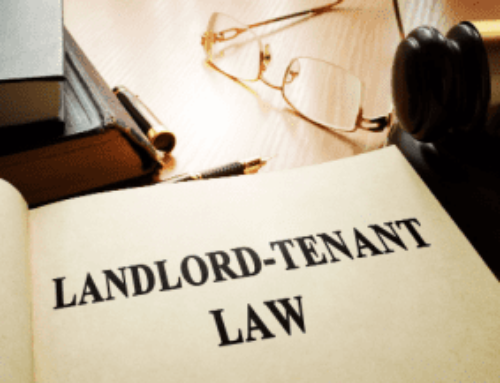It’s a question that arises sooner or later for most landlords: “Should I manage my own rentals, or outsource the work?”

Keeping on top of rental maintenance is vitally important for any landlord. But for most, it’s not exactly something they enjoy. After all, being on call 24/7 for any repairs and maintenance issues that arise can get tiring after a while, even for the most resilient landlord. Then there’s the issue of time. While in the beginning, doing cleaning, painting and small plumbing jobs might be fine, once you’ve got a few rentals under your belt you’ll quickly find that management can escalate into a full-time job. No wonder 62% of landlords in one recent survey claimed that maintenance was their biggest pain point.
If you find yourself struggling to fit it all in, hiring a property manager is something that may have crossed your mind. But is outsourcing your property management always the best solution? When does it make sense to go it alone, and when should you think about bringing someone else on board?
If you’re on the fence, here are a few questions that can help you determine whether a property manager is the best option for you.
Do I have time to manage my property?
If you’ve reached a stage where you dread answering the phone because you don’t want to deal with yet another tenant maintenance request, it may be time to outsource.
In my line of work, I see it all the time: landlords running themselves ragged, trying to do it all. They have a few properties, but instead of creating passive income streams for themselves, they’ve simply acquired another job — a full-time one at that.
Don’t let your dream of owning rental properties become stifled because you can’t afford to put any more hours in at your properties. Instead, consider outsourcing to a reputable rental management professional who will be able to oversee the properties in your stead.
Do I want to expand my rental property portfolio?
If your goal is to own five, 10 or more rental properties, outsourcing is the fastest way to get there. This is especially true if you’re finding that maintenance and repairs are starting to keep you from high-level tasks like finding and assessing new investment opportunities and properly overseeing your property portfolio.
Will I invest in markets outside of my local area?
While many landlords start out with properties in their own hometown, if you’d like to grow your portfolio, you may wish to take advantage of up-and-coming markets or opportunities that are better than what’s available in your own backyard. However, being a long-distance landlord can bring its own set of unique challenges, even for experienced landlords.
If you’re thinking of investing in an out-of-town property, hiring a professional property manager who will be your eyes and ears on the ground can free you up from the stress that’s often associated with long-distance landlording.
Will a property manager help me be more profitable?
Finally, is hiring a property manager a financially smart decision? If you have one or two local properties, it might make more sense to oversee them yourself. But often, professional landlords find that hiring a property manager to oversee their rentals enables them to invest in more properties than they’d be able to otherwise, helping to maximize returns.
Finding A Reputable Property Manager
Much of your rental property’s success is contingent on how well it’s managed. For landlords who are thinking of outsourcing management or maintenance, finding a reputable and qualified professional is crucial.
Be sure to do your research upfront. Read online reviews. Ask for referrals. And, much like conducting an interview, ask your prospective property managers qualifying questions to ensure you end up with a great match. Here are a few questions you should ask:
1. How much experience do you have?
First, you’ll want to ensure that you find a professional who’s experienced and knowledgeable — one with a proven track record of success. Consider asking how many rental units they are currently responsible for. A low number could indicate that they’re new to the game, or perhaps struggling.
2. How do you structure your fees?
Concerns about cost is one of the main factors that keeps people from outsourcing. And naturally, this should be one of the first questions that you ask. Generally, monthly fees are either fixed or a percentage of the rental yield, often 8-12% of the monthly revenue. Optional packages and additional services could impact the cost, though, so make sure you’re aware of their fees before you commit.
3. Are there any fees when the property is vacant?
If you find a company that charges you while the property sits vacant, be careful. Property managers should have an incentive to keep your rental occupied, and if they’re being paid regardless, then that incentive goes away.
4. How do you screen tenants?
Any property manager worth their salt will not only screen tenants thoroughly, but also have airtight policies and procedures in place to ensure that they do so in a way that’s in compliance with the Fair Housing Act.
5. What’s your average vacancy rate?
Reducing vacancy times is key to maximizing your returns. A reputable property manager should know their average vacancy rates, and will be more than happy to inform you of them. Anything within the two- to three-week window is outstanding.
At the end of the day, the decision to outsource comes down to your personal preferences and investment goals. While first-time landlords can certainly benefit from the cost savings of doing their own work, for experienced landlords, offloading the day-to-day tasks to a professional is something that often makes sense. Many landlords find that it’s a pivotal turning point in their investment career — the decision that’s responsible for allowing them to reclaim their time and focus on growing their investments.
Position Realty
Office: 480-213-5251



